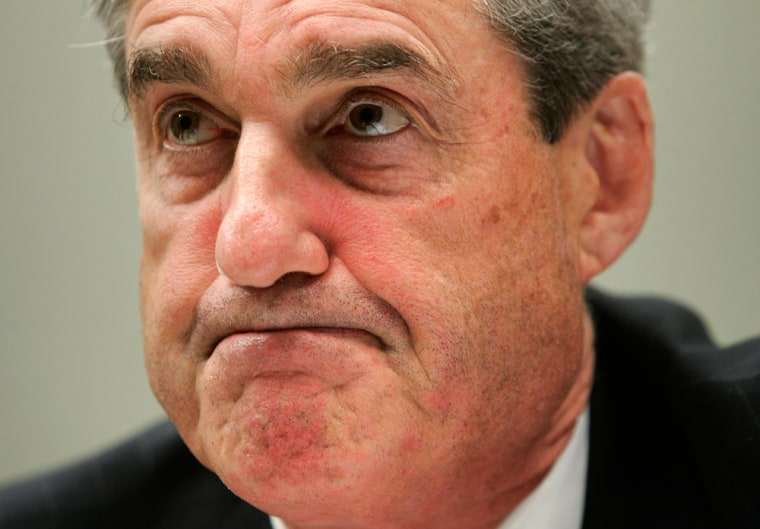The head of the FBI contradicted Attorney General Alberto Gonzales’ sworn testimony and Senate Democrats requested a perjury investigation Thursday in a fresh barrage against President Bush’s embattled longtime friend and aide.
In a third blow to the Bush administration, the Senate Judiciary Committee issued subpoenas to compel the testimony of Karl Rove, Bush’s chief political adviser, in connection with its investigation.
“It has become apparent that the attorney general has provided at a minimum half-truths and misleading statements,” four Democrats on the Senate Judiciary Committee wrote in a letter to Solicitor General Paul Clement calling for a special counsel to investigate.
“I’m convinced that he’s not telling the truth,” added Senate Majority Leader Harry Reid, D-Nev.
The developments marked a troubling turn for Gonzales as well as the administration, which has been on the political defensive since congressional Democrats launched an investigation seven months ago into the firings of U.S. attorneys.
That probe revealed information that Democrats have sought to weave into a pattern of improper political influence over prosecutions, of stonewalling and of deceit in sworn testimony before Congress.
Making a list
The White House defiantly stuck by Gonzales and denied that FBI Director Robert Mueller had contradicted him.
Democrats insisted that Gonzales had been untruthful and that the White House had encouraged top aides to flout congressional subpoenas in the U.S. attorney probe.
But Gonzales took the toughest hits Thursday, when four Senate Democrats issued a list of examples of what they said was the attorney general lying to Congress under oath — the basis for their request to Clement to appoint a special counsel to investigate.
Among the Democrats’ examples of Gonzales’ untruthfulness was his emphatic and repeated statement to the Judiciary Committee Tuesday that his dramatic nighttime visit to the bedside of Attorney General John Ashcroft in 2004 was not related to an internal administration dispute about the president’s secret warrantless eavesdropping program.
Warrantless wiretapping discussed?
In his own sworn testimony Thursday, Mueller contradicted his boss, saying under questioning that the terrorist surveillance program (TSP) was the topic of the hospital room dispute between top Bush administration officials.
Mueller was not in the hospital room at the time of the dramatic March 10, 2004, confrontation between Ashcroft and presidential advisers Andy Card and Gonzales, who was then serving as White House counsel.
Mueller told the House Judiciary Committee he arrived shortly after they left, and then spoke with the ailing Ashcroft.
“Did you have an understanding that the conversation was on TSP?” asked Rep. Sheila Jackson Lee, D-Texas in a round of questioning that may have sounded to listeners like bureaucratic alphabet soup.
“I had an understanding the discussion was on a NSA program, yes,” Mueller answered.
Jackson sought to clarify: “We use ‘TSP,’ we use ‘warrantless wiretapping,’ so would I be comfortable in saying that those were the items that were part of the discussion?”
“The discussion was on a national NSA program that has been much discussed, yes,” Mueller responded.
The NSA, or National Security Agency, runs the program that eavesdropped on terror suspects in the United States, without court approval, until last January, when the program was put under the authority of the Foreign Intelligence Surveillance Court.
